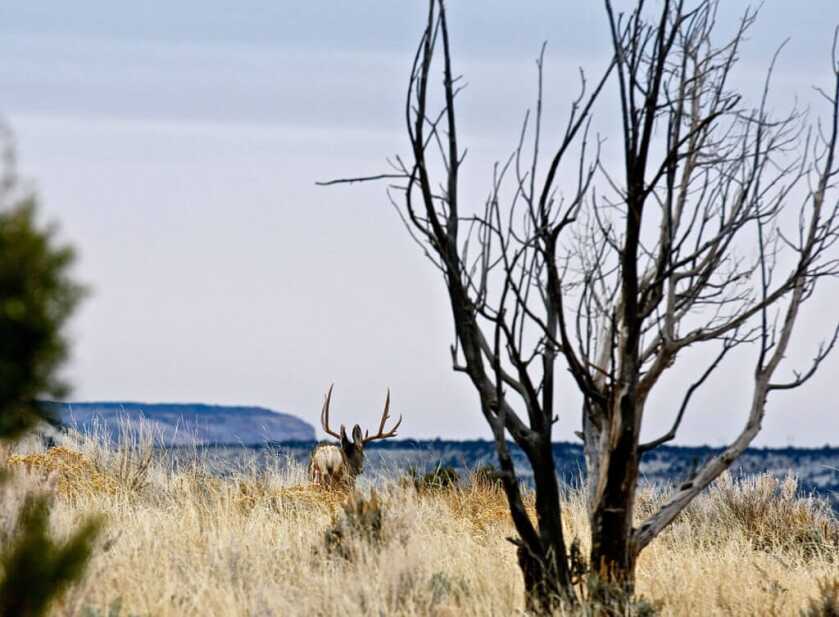
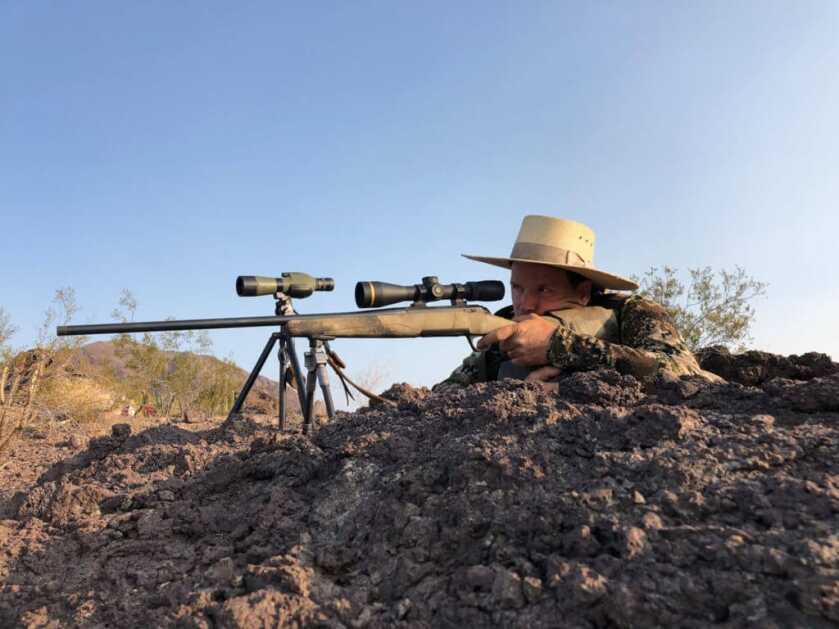

Belly crawling over a sandstone lip, I eased my rifle alongside and then inched my binocular to my eyes. Nothing was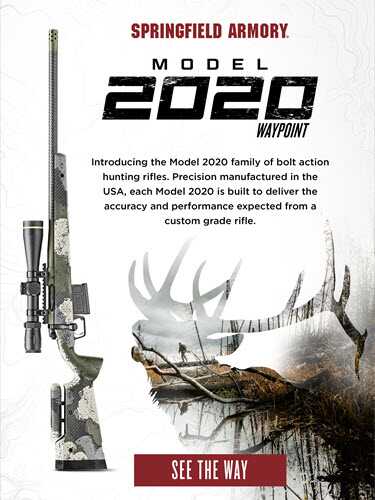 moving in the distant alfalfa field to my north, nor the brush country between. Relaxing, I sat up, opened the legs on my tripod, and mounted a spotting scope atop. Settling in, I rested my rifle on its bipod, wiggled a rear bag into place, and hit the far ridge with my rangefinder. There were several big bucks using this area, and I should have a shot opportunity as they crossed the ridge headed toward the alfalfa field for an evening meal. The shot distance would be just over 400 yards.
moving in the distant alfalfa field to my north, nor the brush country between. Relaxing, I sat up, opened the legs on my tripod, and mounted a spotting scope atop. Settling in, I rested my rifle on its bipod, wiggled a rear bag into place, and hit the far ridge with my rangefinder. There were several big bucks using this area, and I should have a shot opportunity as they crossed the ridge headed toward the alfalfa field for an evening meal. The shot distance would be just over 400 yards.
Relaxed, I watched the field and the ridge as the sun settled toward the horizon. Nothing moved; these bucks were big and old, and likely wouldn’t show until after the sun had set, if then. Leaning forward, I adjusted my spotting scope, then sat back and scrubbed my foot deeper into the sand to relieve some pressure in my knee. That’s when it happened. Seven bucks bounded away from directly below my position, their huge racks flashing in the sunshine. They had been bedded just below me this whole time.
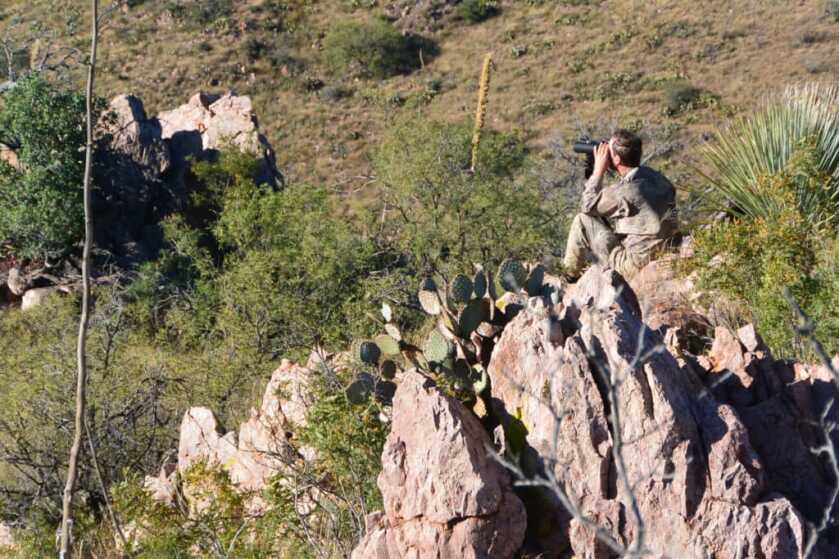
RIFLE, OPTIC, AND AMMO
For this hunt, I was carrying an accurate bolt-action rifle chambered in .300 Winchester Magnum. It was zeroed at 200 yards with Hornady’s excellent Precision Hunter ammunition, topped with their 200-grain ELD-X bullet. This bullet is very aerodynamic and streamlined, sporting a G1 BC (ballistic coefficient) of .626. Velocity was 2842 FPS (feet per second). It was a potent combination.
My riflescope was made by Zeiss, and sported an MOA turret. I chronographed the load, ran the calculations, and printed out a drop chart showing my come-up numbers out to 1,000 yards. Long-range testing proved my calculations correct in the field, but since I didn’t have anyone behind my spotting scope to assist with wind calls and spot impacts for me I wouldn’t shoot at a deer beyond 500 yards. I had a bipod mounted to the forend sling swivel stud on my rifle, and a lightweight rear bag to help support the buttstock for a super steady prone position. The rifle routinely shot groups averaging .75 inches at 100 yards. I should have no trouble closing the deal on a buck.
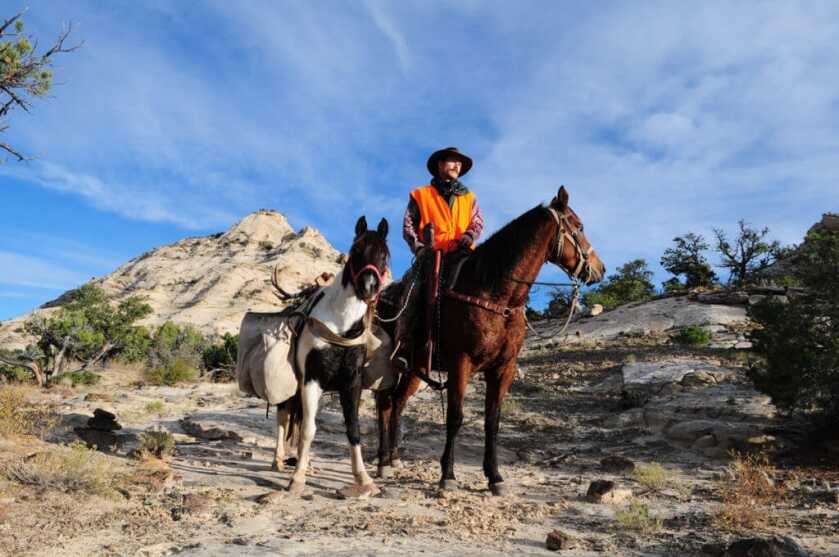
THE SCENARIO
It was the end of my guiding season, and all my clients and friends had harvested deer. It was finally my turn, and I wanted a little peace and quiet. I threw my saddle on a good horse and a pack on another, and rode a few miles into a hard-to-access public land area that bordered a hayfield. Laying a tarp on the ground I rolled out my sleeping bag and set out my Pocket Rocket stove and Mountain House dinner, I stuffed a headlamp in my pocket, climbed my ridge, and peeked over. Nothing showed, so I settled in, ranged potential shot positions, and relaxed. That’s when the band of big bucks jumped up from directly below my position and bounded away, big racks shining in the sun. I’d been ready for a precise long-range shot, but not this. Seasoned mule deer hunter though I was, I still came apart at the seams. In my haste to ascertain which of the big bucks to shoot I knocked my spotting scope over, got my feet tangled in the rocks as I tried to get prone, and lost my glasses. A frantic 3-second search failed to turn them up, so I squinted and got a fix on the bucks. They were 250 yards below me, stopped in a small opening in the brush.
Hands shaking, eyes blurry, rifle wobbling, I tried to steady my crosshairs on the biggest buck. No luck, an adrenaline surge the size of a large tsunami was having its way with my body, and a steady rifle was not going to be part of the equation. There! The crosshairs waved across the buck’s body. My finger closed on the trigger.
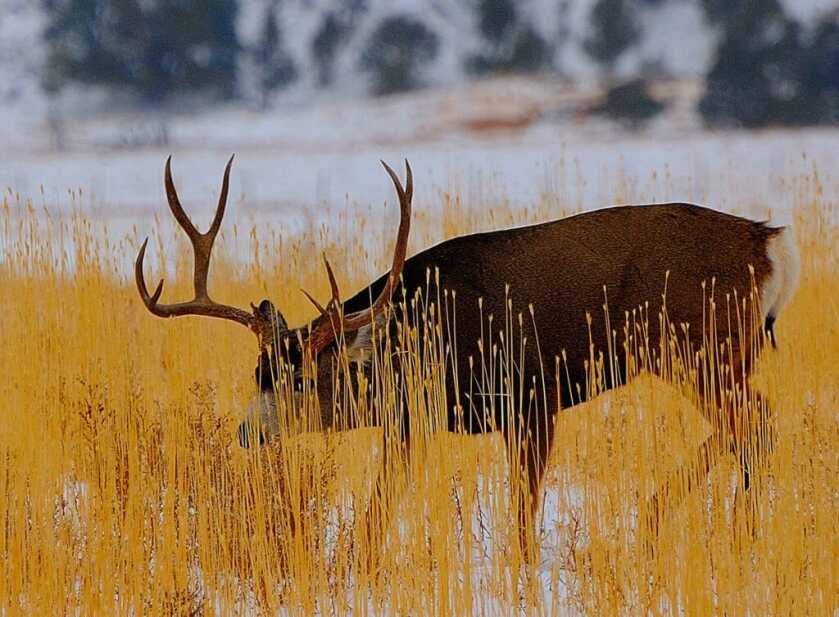
TAKE THE SHOT?
Put yourself in my shaking shoes. You have a big, hard-to-find buck in your crosshairs. You have great confidence in your rifle, optic, and ammo. The buck is in easy range. Everything has come together except your nerves. After being ambushed like this, they are completely frayed. No chance you’re going to be real steady, but you are prone and your crosshairs are waving at the buck. He’s nervous and about to depart. Do you take the shot?
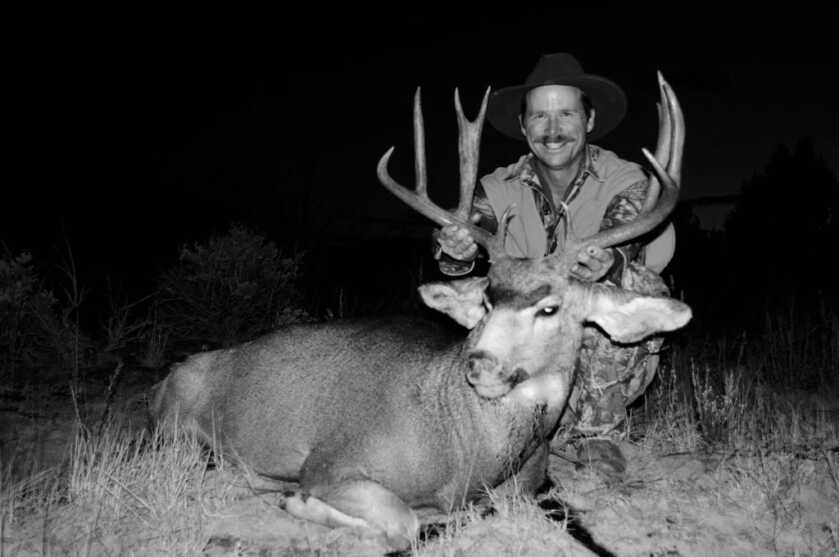
HERE’S WHAT HAPPENED (TRUE STORY)
I took the shot. And missed.
The bucks ran across the canyon bottom and started up the opposite side. I found the big buck in my crosshairs again, and as soon as he stopped I shot again. And missed again. That time the range was 375 yards. I put my rifle down.
After giving myself a good internal chewing out, I lifted my rangefinder and hit the bucks, now trailing over the far ridge at 417 yards. I cranked the dial on my scope to that distance and settled in prone behind my rifle, snuggling the rear bag into place. Calmly, I knew that I had only seconds until the big buck walked out of sight and was gone. One deep breath later I pressed the trigger.
And center-punched that big buck.
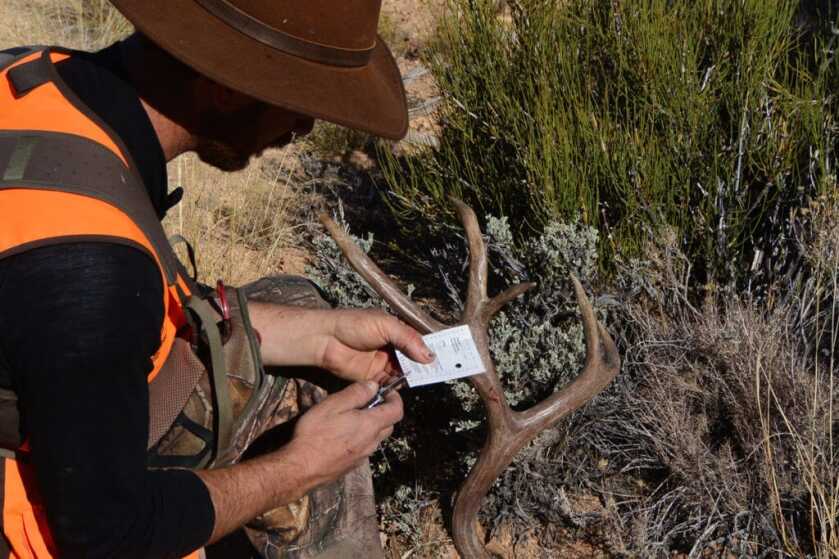
CONCLUSION
I learned several lessons from that experience, or more correctly, re-learned them. I had harvested a lot of nice mule deer before that day, including a few whoppers. But that experience showed me that if I stopped being in control, I could still miss. Once I re-acquired my composure I placed a perfect long-distance shot on that deer. Ironically, the shot was the exact distance and position I had originally expected. And there’s a message: be prepared for any and every shot opportunity, because if you don’t, you might get surprised and have a high-speed come-apart.
What do you think? Would you have taken those shots? I’d love to hear your thoughts in the comment section below.


Hell yes or spent the rest of my life in turmoil !!!!!
I have had the experience of not taking the shot and the remembrance of the woulda coulda shouda haunt me. Now when that happens I just look away at a tree or rock and just swing the crosshairs onto the target and squeeze before my head ruins the shot.
I’m a Pennsylvania hunter and was taught to not take a shot without a solid background where the missed shot bullet would travel who knows where. I hope the first picture in the story was not the first shot he took.